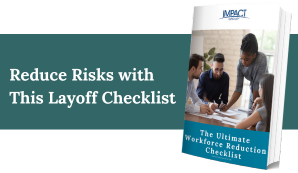In a perfect world, a job seeker would hold off on accepting a job offer until all applications, interviews, and pending offers were exhausted. They would ensure everything lines up perfectly so that a best choice can be made without putting themselves, or potential employers, in a bad spot.
However, that isn’t realistic when it comes to a job search. Hiring occurs on a rolling basis; jobs are posted and filled all the time. Your emotions, excitement, and eagerness push you to make quick decisions. A few sticky situations can arise because of this.
Consider this scenario: you’ve already accepted – or even just started – a new job. The company you really want to work for just called you about an open position. What do you do?
Can you back out of the job offer?
Yes. Technically, anyone can turn down a job offer, back out of a job already started, or renege on an acceptance at any point. Most states operate with what is called “at will employment.” This means the employee and the employer are not in a binding contract. However, there is a caveat to this. You are unable to back out if a formal binding contract is signed (which is extremely rare) or if you have signed a non-compete clause and the interview is with a direct competitor.
Should you back out?
Maybe. Maybe not. The answer to this question is far less clear. Reneging is something that happens more than people realize. However, it should never be done lightly and without serious consideration.
The answer is entirely situational and individual dependent. On one hand, hiring can take a while. There is no guarantee that the call from your dream company will bear fruit in terms of a job offer. On the other hand, if you stay with your new employer and it isn’t a good fit, you will ultimately be discontent. This could lead to serious repercussions in terms of performance and promotion.
While it is okay to safeguard your interests and act accordingly, remember that there is always a cost-benefit with such a choice. Consider this: the cost might not be worth what you perceive you will gain.
What’s the fallout?
Likely, you will have zero chance of working for that same company in the future. You must weigh if closing that door forever is something your reputation and future career can handle. Also, if you worked with an internal recruiter or a staffing firm to secure your current job offer or position, remember that recruiters move around and they talk. So do managers and employees who may have been involved in your hiring process. If you renege, they might remember you down the road when you apply to a future company at which they are employed. Damaging your reputation long term is possible. Many times, it isn’t a risk that is worth taking.
How can you avoid this in the future?
- Don’t accept offers just to have a job if it isn’t the right job. Sometimes economics dictate us taking a position out of need, but we end up regretting the decision down the line. If financially possible, avoid accepting roles unless they are the right fit for you.
- Do always negotiate for time to consider a job offer. This allows you to follow up with those companies where you have pending applications to alert them that you have an offer and want to move forward with them before finalizing a decision. Many companies will work with you if they are seriously interested in your candidacy.
- Do always understand what it is you need and want in your next role. This prevents you from settling.
What if you pass on the dream company and stick with the original job offer?
It is likely that your dream job will still be there in the future. If the company is seriously interested in you, explain that you are deeply interested, but out of integrity, you need to stay with your new employer. This will only heighten the impression you are making and likely make them want you more. Explain that you want to keep in active contact. Next, make sure you do everything you can to deepen that relationship. Foster additional connections at that firm and continue networking/informational interviewing over the next 1-2 years.
As a coach, I help the job seeker understand what it is about the current job offer that is lacking. Conversely, I also ask them what it is about the dream job that makes it so “dreamy.” I might ask, when you accepted the current role, were you unsatisfied from the get-go? In other words, did you take the position out of desperation, just to have a job, just for the money, just for the title, just for the company name, etc.? If the answer is no, I go down a different path. I’ll ask, did you check all these boxes: right role, right company, right boss? If not, can you still get to what is missing within this opportunity/company?
Then, I encourage the job seeker to consider the dream company. What about it makes it seem so compelling? Do you really know enough about the role, company, boss to throw away the opportunity in hand? What is your real motivation in wanting to work for them?
Unfortunately, there is no easy answer to this quandary. It comes down to the situation and your career aspirations. Take into account the pros and cons to both sides before making a swift decision.
On the hunt for your next role?
Chances are your emotions are showing up in your job search, and possibly derailing any forward movement. Identify, confront and conquer the 10 emotions that are preventing you from landing that new job. Get a copy of our CEO’s latest book to take control of your job search!



